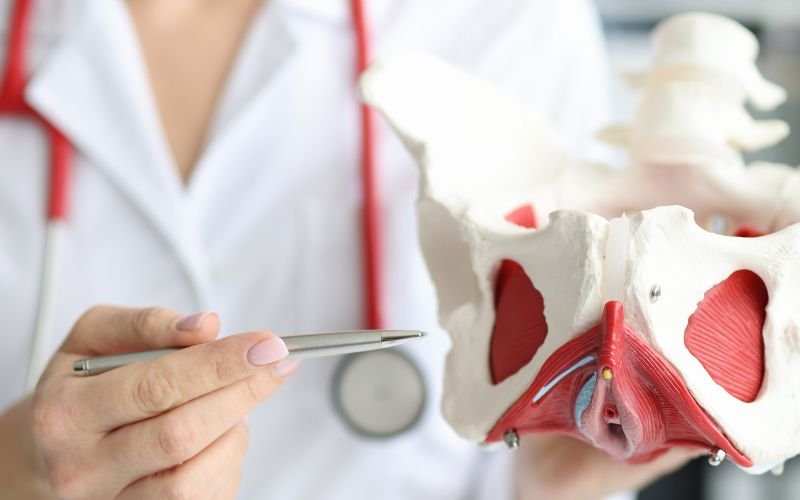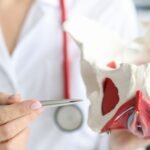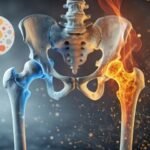Avascular necrosis (AVN), also known as osteonecrosis, is a condition of hip joint, causing pain, limited mobility, and, if left untreated, leads to disability. As an ortho specialist with an experience of more than 2 decades Dr. Mahanta, treated many cases of AVN patients. In this article, he is explaining AVN of the hip, its causes, symptoms, and treatment in Ortho hospital in Dwarka, Delhi.
What is AVN of the Hip?
AVN occurs when there is a disturbance of the blood supply to the bone, leading to bone tissue death. In the cases of the hip joint, it is responsible for mobility and weight-bearing capability of a body. The femoral head, the spherical end of the femur that fits into the hip socket, is gets affected by AVN.
What are the Causes of AVN?
AVN of the hip can be caused by the following factors, including the common denominator being impaired blood flow to the femoral head:
- Chronic Corticosteroid Use: Prolonged use of corticosteroid medicine or drugs for inflammatory conditions or autoimmune disorders, is a top cause of AVN due to its side-effects on blood vessel health.
- Alcohol Abuse: Excessive alcohol consumption is can cause AVN, due to its toxic effects on bone and blood vessels.
- Trauma: Hip injuries, such as fractures or dislocations, disrupt the blood supply to the femoral head, predisposing it to AVN.
- Medical problems: Conditions such as sickle cell anemia, lupus, and HIV/AIDS increase the risk of AVN by compromising blood flow or causing inflammation in the body.
What are the Symptoms of AVN?
Symptoms of Avascular Necrosis develop gradually or suddenly and include following:
- Hip pain is a main symptom of AVN. It gets worsen with exercise and weight activities and progresses over time.
- As AVN progresses, stiffness and decreased mobility in the hip joint become more common, making normal life activities like walking or bending increasingly difficult.
- Pain intensify during physical activity and subside with rest, but as the condition advances, it become persistent even at rest.
Diagnosis of AVN can be done by any ortho doctor, you can google “ortho specialist near me“ and get clinical assessment, X-rays, or CT scan, and possibly blood tests to rule out any cautious conditions.
AVN Treatment in Delhi
The optimal treatment for AVN depends stage of the disease, the extent of bone damage, and the patient’s overall health. Treatment options include following:
In the early stages of AVN, rest, activity modification, and pain reduction with nonsteroidal anti-inflammatory drugs (NSAIDs) suffice to decrease symptoms and slow disease progression.
Bisphosphonates, drugs that help preserve bone density, may be prescribed to reduce bone loss and potentially delay the need for hip surgery.
Bone Cell Therapy is another new treatment that can cure the AVN completely without surgery.
AVN Surgery in Delhi
The following type of surgery are performed when no medicine or ointment or other treatment is able to show results:
- Core Decompression: Hip surgery involves drilling into the femoral head to relieve pressure, stimulate blood flow, and facilitate formation of new blood vessels and healthy bone tissue.
- Bone Grafting: In advanced cases of AVN where bone loss has occurred, bone grafting surgery becomes necessary to replace damaged bone with healthy bone from another part of the body or a donor.
- Total Hip Replacement (THR): For end-stage AVN or cases THR offer the best chance for long-term pain relief and restoration of function. During this hip surgery, the diseased femoral head and socket are replaced with artificial components.
Avascular necrosis of the hip is a complex hip condition. It can happen in old ages. The average age of patients ranges from 38 to 50. Dr. Mahanta heads the orthopedics hospital in Dwarka called the Bone Clnic where you can visit him or his team of best bone doctor in Delhi to consult regarding AVN or any bone problem.




